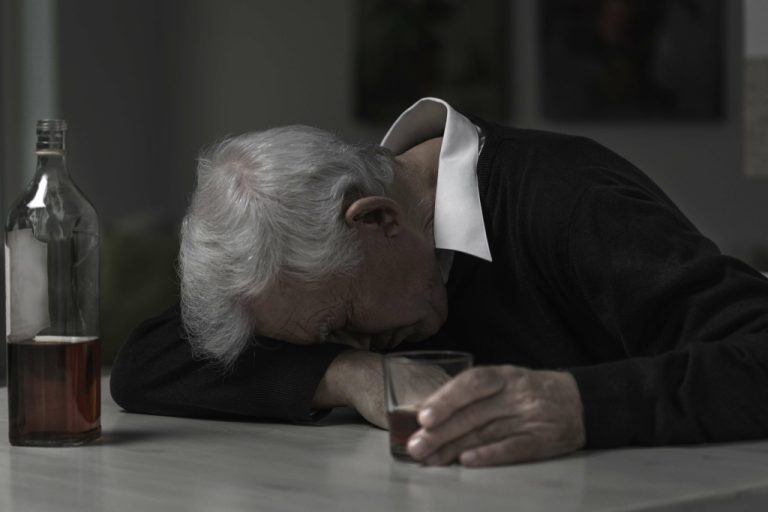Content
More than 14 million adults ages 18 and older have alcohol use disorder (AUD), and 1 in 10 children live in a home with a parent who has a drinking problem. An important first step is to learn more about alcohol use disorder and your treatment options. Cassiobury Court is a beautiful, homely residential facility, situated in a charming residential area and set within lush grounds, offering a really relaxed and peaceful environment. All bedrooms are individual https://ecosoberhouse.com/ and there are shared bathrooms and ensuite rooms available so that you can have quiet time to yourself when you need it. A comfortable dining room, lounge, activity room and TV area offer space to socialise, whilst tranquil holistic therapy rooms are the key to revitalising alone time. The latest NHS guidelines, published in 2016, advise that you shouldn’t be drinking more than 14 units of alcohol per week, and this should be spread over three days or more.
The need for new alcohol use disorder treatments may be more dire than ever. Alcohol-related deaths in the United States increased dramatically between 2007 and 2020, especially in women, according to research published in the journal JAMA Network Open. The next year, they spiked again, to 108,791 alcohol-related deaths in 2021 alone, according to the National Institutes of Health. That’s slightly more than the number of drug overdoses recorded in 2021. As a loved one of someone with an alcohol addiction, try to be encouraging and provide emotional support.
Why Can’t Alcoholism be Cured?
Alcohol addiction may involve several different treatment methods. It’s important that each person get involved in a recovery program that will support long-term sobriety. This could mean an emphasis on therapy for someone who is depressed, or inpatient treatment for someone with severe withdrawal symptoms. Depression and anxiety often go hand in hand with heavy drinking. Studies show that people who are alcohol dependent are two to three times as likely to suffer from major depression or anxiety over their lifetime.
- For serious alcohol use disorder, you may need a stay at a residential treatment facility.
- Certain events or emotional states may trigger a relapse in recovering alcoholics.
- Combined with treatment led by health professionals, mutual-support groups can offer a valuable added layer of support.
Most people benefit from regular checkups with a treatment provider. Medications also can deter drinking during times when individuals may be at greater risk of relapse (e.g., divorce, death of a family member). For serious alcohol use disorder, you may need a stay at a residential treatment facility. Most residential treatment programs include individual and group therapy, support groups, educational lectures, family involvement, and activity therapy. A common initial treatment option for someone with an alcohol addiction is an outpatient or inpatient rehabilitation program. It can help someone handle withdrawal symptoms and emotional challenges.
Importance of Ongoing Alcohol Therapy
The founders of Asheville Recovery Center, as well as many of our addiction therapists, have struggled with addiction and now enjoy life in recovery. They understand the struggles of addiction and how difficult it is to overcome on your own. We are proud to the best alcohol rehabilitation North Carolina has to offer.

You’ll learn about addiction itself, how to identify and address the underlying causes, and how to prevent relapse. This is why it is common in the medical and recovery world to acknowledge that there is no cure for addiction. Too many people have gotten clean, built a new life they love, declared they’re “cured,” and multiple drinks later find themselves can alcoholism be cured back where they were a few years ago. A critical element in fighting addiction is locating its source. Behavioral therapy works to identify the source of addiction, whether it be a co-occurring disorder, trauma, or both. Individuals involved in behavioral therapy will develop the skills needed to identify and correct damaging behaviors.
What are the symptoms of alcoholism?
The newer types of these medications work by offsetting changes in the brain caused by AUD. Due to the anonymous nature of mutual-support groups, it is difficult for researchers to determine their success rates compared with those led by health professionals. Alcohol use disorder (AUD) is a medical condition that doctors diagnose when a patient’s drinking causes distress or harm. The condition can range from mild to severe and is diagnosed when a patient answers “yes” to two or more of the following questions. Research shows that about one-third of people who are treated for alcohol problems have no further symptoms 1 year later. Many others substantially reduce their drinking and report fewer alcohol-related problems.
Alcoholism can be successfully treated through adherence to recovery programs. The National Institute on Drug Abuse explains that addiction and alcoholism cannot be cured. However, like other chronic diseases, addiction can be managed successfully. Treatment allows individuals to counteract addiction’s powerful disruptive effects on their brain and behavior and retake control over their lives. Just as some people with diabetes or asthma may have flare-ups of their disease, a relapse to drinking can be seen as a temporary setback to full recovery and not a complete failure. Seeking professional help can prevent relapse—behavioral therapies can help people develop skills to avoid and overcome triggers, such as stress, that might lead to drinking.
Alcohol Detoxification: Part of the Treatment
People with alcohol use disorder can’t stop drinking, even when it causes problems, emotional distress or physical harm to themselves or others. After withdrawal, doctors recommend that patients continue treatment to address the underlying alcohol use disorder and help them maintain abstinence from or achieve a reduction in alcohol consumption. Though at-risk and binge drinking can result in a range of adverse consequences, not all people who engage in these kinds of unhealthy alcohol use have alcohol use disorder.
- Treatment for alcohol use disorder can vary, depending on your needs.
- You will also learn life skills and be able to avail yourself of other useful services that will help you to make a permanent life change.
- Compared to primates that received a placebo IV, those that received the growth factor gene decreased their drinking by about 90%.
- The groups for family and friends listed below may be a good starting point.



Recent Comments